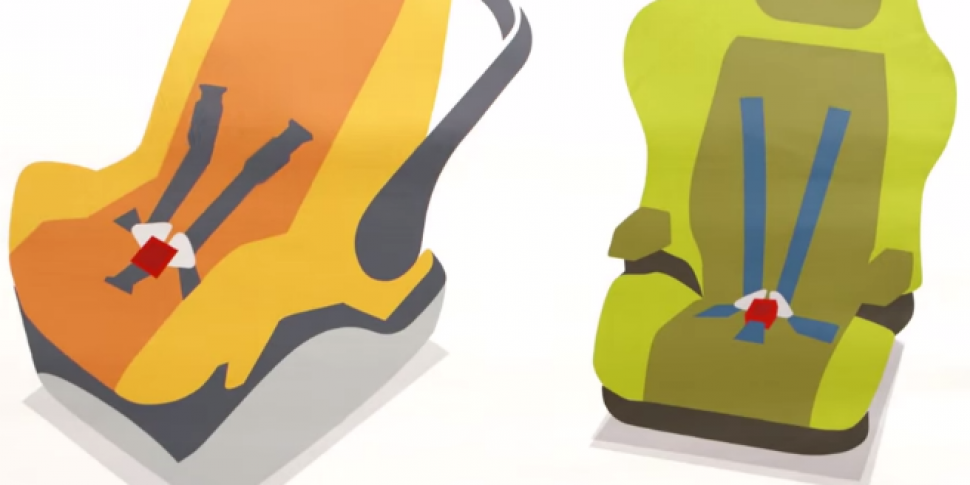One of Ireland's top baby goods retailers is warning parents that it is their responsibility to make sure a child is properly restrained in a car, no matter what the cost, or the law.
He has warned parents who are currently using booster seats for their older children that he would not use that product for his own child, and his chain of shops is now refusing to stock them for that reason.
Tony Kealy's Managing Director Paul Kealy spoke to Newstalk.com's Pat Kenny Show earlier about child safety in cars.
Kealy also said that new regulations will soon force parents to put children up to the age of 15 months in rear-facing car seats. Most infant car seats sold on the Irish market now will already put children facing to the back.
Parents are required by law to make sure their children are suitably restrained.
You risk a fine and penalty points if you fail to do so.
Fig: Road Safety Authority
Car seats for children older than 15 months vary enormously.
Nursery shop own Kealy is recommending that parents keep their children facing to the rear up to the age of four, even if that means they are uncomfortable.
Though they will not be required to by law, he is encouraging parents to follow the lead of parents in the US and Scandanavian countries and choose to buy rearward facing seats.
In America babies stay rear-facing until the age of two, while in some northern European countries children up to the age of four stay facing to the rear because of road conditions.
Rear facing seats are five times safer for your child, because of their body strength. If a forward facing seat is involved in a front impact crash the people in the car will be thrown forward. A child's neck isn't strong enough to provide resistance to that and serious damage can be caused. Adults' bodies are better able to withstand an impact.
Though it is not yet law that a child over the age of 15 months should use a rearward facing seat, Kealy's say about half of the seats they sell up to the age of four are rearward facing.
He says: "The child will be squashed, but it's better to have damage to legs than to neck".
Common dangers
Four out of five children's car seats are installed incorrectly - in a crash they will not work as designed.
Three out of four incorrectly fitted car seats may not save a life, and may cause serious injury.
For older children, seats with a back are three times safer than backless booster seats.
You must make sure the child is as comfortable as possible, or they will be tempted to open their harness. Sometimes this is because the shoulder straps are fixed too low.
Children will often go through a stage of opening their car seat harness as a party trick. It is important to have a serious conversation explaining the dangers of removing their belt.
Top tips
The safest way to restrain a child is to find a car and a seat that will support an ISOFIX connection. That is a way of clicking a car seat into the chassis of a car for maximum safety.
Most cars made in the past 10 years have IsoFix fittings, and seats for these are easy to put in, are less likely to be fitted incorrectly and perform better in safety tests. However, they are more expensive and tend to be heavier.
If you are using a car seat for the first time for your new baby, you should get it checked over by an expert - any retailer that sells car seats will do this for you, free of charge. The car seat doesn't usually even have to have come from that shop.
Never use a rearward facing carseat in a front seat, because airbags can cause damage. You must turn off the airbag function if using the front seat.
Finally, spend. Kealy's says the best car seat might cost you €900, but if that seat took a child from newborn stage to age 11 that would work out at a cost of about €1.60 a week.










